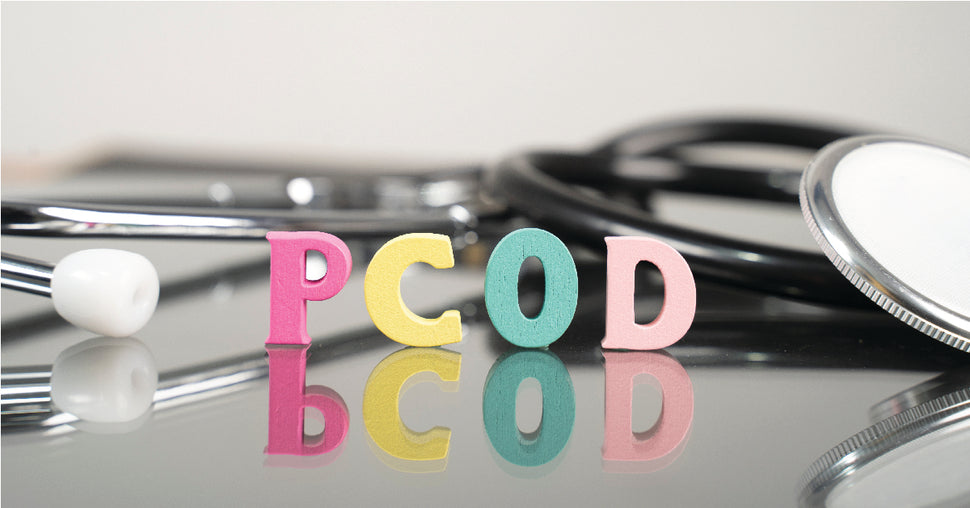PCOD: A Complete Guide
06 Nov 2020
What is PCOD?
Polycystic Ovarian Disease (PCOD) is a hormonal disorder that affects women in the reproductive age group. It is also commonly referred to as Polycystic Ovary Syndrome or PCOS.
In PCOD, elevated levels of male hormones and hormonal imbalances cause a wide range of symptoms, including irregular or missed menstrual periods, acne, and so on. The formation of fluid-filled cysts in the ovaries is another common symptom; this is how the condition gets its name – Polycystic (multiple cysts) Ovarian Disease.
Many women only learn that they have PCOD when they struggle to conceive as the condition can adversely affect fertility levels.
If not dealt with in a timely manner, PCOD can also go on to cause more serious complications.
Causes of PCOD
Although the precise PCOD causes are not fully understood, we do know that certain factors increase the risk of PCOD. These include:
- Insulin Resistance – When your cells become resistant to insulin, your pancreas is forced to produce more insulin to prevent a rise in blood sugar levels. Elevated insulin levels could then trigger increased androgen (the male hormone) production, adversely affecting ovulation.
- Inflammation – Inflammation levels tend to be elevated in women with PCOD. This type of low-grade inflammation is also linked to obesity and studies have shown a connection between excess inflammation and elevated androgen levels (1).
- Heredity – The condition is linked to genes and may run in some families.
Symptoms of PCOD
Very often PCOD causes no visible symptoms, with some studies suggesting that as many as 70 percent of women with PCOD may not know that they even have the condition (2). This is what makes online consultations and clinical diagnosis so important.
In cases where symptoms do surface, they usually appear around the time of first menstruation or later in life if there is significant weight gain as obesity severely exacerbates symptoms. Here are the most common PCOD symptoms:
- High androgen levels prevent ovulation, which stops the uterine lining from shedding. This can cause irregular periods, missing periods, or heavy bleeding.
- In most cases, women with PCOD experience increased hair growth on the face and back.
- Male hormones can increase sebum production, which leads to more acne outbreaks.
- Obesity and excess body weight are recorded in 80 percent of women with PCOD.
- High levels of male hormones can cause male pattern balding.
- Skin darkening may be observed in areas with skin folds, such as in the groin, armpits, neck, and under the breasts.
- Some women may suffer from increased headaches.

Treatment of PCOD
Lifestyle and diet changes are key aspects of PCOD treatment that most doctors now recommend. These lifestyle changes are critical to overcoming PCOD as studies show that weight reduction of even 5 percent can improve treatment outcomes, reducing the severity of symptoms and improving the efficacy of medications (3).
Treatment of PCOD with medications focuses on specific symptoms like hirsutism and infertility, or an underlying cause such as insulin resistance. Here are some common PCOD treatments:
- Medications like metformin are used to improve insulin levels, reduce resistance, and treat type 2 diabetes. This can help resolve other PCOD symptoms.
- Combination birth control pills and progestin therapy may be used to regulate hormonal levels and correct menstrual abnormalities. This can also help lower the risk of endometrial cancer, excess hair growth, and acne.
- Hormonal medications like gonadotropins and clomiphene may be used to stimulate the ovaries and encourage ovulation.
- Medications to block androgen effects on skin can be prescribed to stop or to slow excess hair growth.

PCOD and Pregnancy
Although a diagnosis of PCOD doesn’t make conception impossible, it makes it much harder; roughly 70 percent of women afflicted with PCOD experience fertility problems (4). There is also a higher risk of pregnancy complications, with PCOD patients more likely to have a premature delivery, suffer a miscarriage, and develop hypertension or gestational diabetes (5).
Weight loss, blood sugar level management, and fertility treatments can be used to improve the chances of conceiving.
PCOD Complications
Hormonal imbalances associated with PCOD can increase the risk of various health conditions.
- Infertility, which can result from irregular ovulation.
- Metabolic syndrome disorders such as diabetes, hypertension, and heart disease, because both obesity and PCOD are linked to these conditions.
- Irregular ovulation can cause thickening of the uterine lining and this increases the risk of endometrial cancer.
- Women with PCOD face an increased risk of clinical depression and anxiety disorders.
PCOD FAQs
- What is PCOD and PCOS?
PCOD stands for Polycystic Ovarian Disease, while PCOS stands for Polycystic Ovary Syndrome. The names can be used interchangeably to refer to the same condition.
- Is PCOD serious?
PCOD is not life-threatening, but it can give rise to complications that are rather serious if not dealt with in a timely manner.
- How can PCOD be permanently cured?
PCOD is a chronic condition that cannot be cured with medication. However, medical treatment and lifestyle changes can reduce its impact on the quality of life.
- Is PCOS sexually transmitted?
PCOS is a hormonal disorder and it is not caused by any kind of infection. This means that it is not contagious and cannot be sexually transmitted.
- Is pregnancy possible in PCOD?
The risk of infertility increases significantly in PCOD, but pregnancy is not impossible. The chances of conception can also be improved with weight loss and fertility treatments.
Recommended Reads:
https://www.setu.in/blogs/lifestyle/natural-remedies-for-pcos-your-grandma-never-told-you-about/
https://www.setu.in/blogs/lifestyle/how-pcos-affects-your-hormones-and-your-body/
https://www.setu.in/blogs/lifestyle/diabetes-pcos-whats-the-connection/
https://www.setu.in/blogs/supplements/are-my-birth-control-pills-making-me-fat/
Skin: Renew - Glutathione - Orange Flavour
- ₹1,994
- ₹1,994
-
₹2,600 - ( 23% OFF)
Categories
- Choosing a selection results in a full page refresh.
- Press the space key then arrow keys to make a selection.
this is the sidecart












